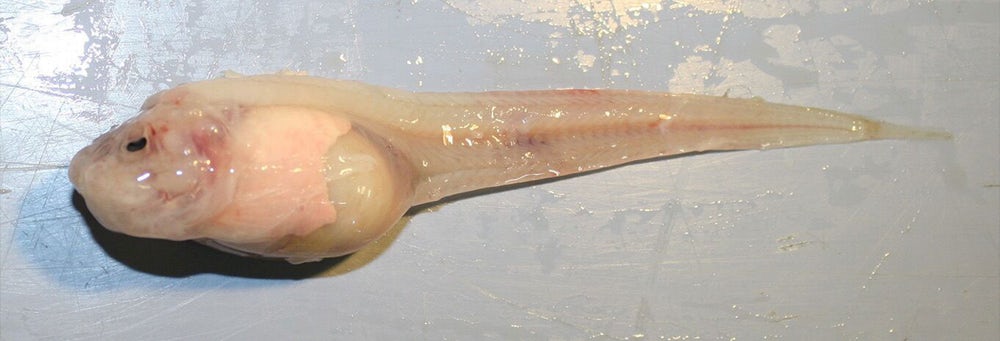A new species of fish has been discovered deep in the Western Pacific, near Guam and it is spectacular
The Mariana Trench, located in the western Pacific, close to Guam, is the deepest stretch of ocean on our planet. These waters are difficult to study and hide plenty of mysteries. Even so, scientists know that the depths are home to amphipods, sea cucumbers, jellyfish and one-celled organisms named foraminifera.
However, researchers were able to discover a new species that no one knew about so far: the Mariana snailfish. It is a two-inch-long, translucent, scaleless fish and the most interpid sea traveler, as it swims deeper than 26,600 ft.
It is officially known as pseudoliparis swirei and it was introduced in the Journal Zootaxa on November 28.
Divers cannot swim where Marian snailfish live, which is why an international research team had to skink cameras and traps into this difficult-to-reach and rarely-even-studied area over three years. The traps needed four hours to fall from the ocean’s surface to where this fish swims. When they were eventually raised, they contained healthy, well-fed snailfish. Moreover, the camera was able to capture their activities.
Mariana snailfish are under a lot of water pressure. The University of Washington issued a press release in which it compared the water pressure to “an elephant standing on your thumb.” Even so, not only does this fish manage to survive the pressure, but also lives well in what is thought to be a hard-to-live-in-environment.
In terms of food, the Mariana snailfish eat small crustaceans that get caught in the trenches that they navigate.
“We think of it as a harsh environment because it’s extreme for us, but there’s a whole group of organisms that are very happy down there,” said lead researcher Mackenzie Gerringer, a marine biologist at the University of Washington. Further research in these depths may yield even more weird discoveries. “There are a lot of surprises waiting,” Gerringer said.
Source: qz.com




